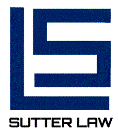Table of Contents
- Should everyone have an estate plan?
- What about assets? Is a Trust absolutely necessary?
- The Trust
- Pourover Will
- Durable Power of Attorney for Financial Affairs
- Advance Health Care Directive
- HIPAA Authorization
- Other related documents
What is an estate plan? You ask? An estate plan can include a variety of elements, but generally, they are composed of the following:
- A Revocable Living Trust
- Your Last Will (“Pourover Will”)
- A Durable Power of Attorney
- Advance Health Care Directive
- HIPAA consent form (Authorization to release protected health information)
- (and a few other related documents)
What do all of these mean? One way to think of an estate plan is like a “Babysitter.”
These are the documents that you put in place that will take care of everything you own–your home, your personal property, even including your own body and person and your children– in the event that you are unable to manage these things for yourself.
In the same way that a parent might give a Babysitter detailed directions on how to manage her kids for the evening, an estate plan is set up to manage everything of importance to you for the rest of your life and after you die.
Should everyone have an estate plan?
Certain elements– YES, absolutely, but they are all a good idea. At the very minimum, everyone should have an Advance Health Care Directive.
If you were, for example, to get in a car crash or have a stroke, this document would inform medical professionals as to how to give you medical care and appoint a person whom you trust to make decisions on your behalf.
Do you want every possible medical action taken to save you? Do you want pain medications? Do you want them to “pull the plug” and let you die peacefully? The Advance Health Care Directive speaks to your wishes and appoints people you trust to make decisions for you.
What about assets? Is a Trust absolutely necessary?
Not necessarily. In California, if you own assets worth less than $166,250 (in 2020), you don’t own real property, and the division of your estate would be very simple (i.e., to your spouse) your estate can usually be administered fairly easily after you die. Your estate will avoid the protracted court process known as “probate”, and assets can be transferred by a written directive known as a “small estate affidavit.”
And if you own assets over $166,250? A Living Trust with a pour-over Will is a really good idea.
The Trust
A Revocable Living Trust is the centerpiece of most modern estate planning. In the most basic sense, a Living Trust is just a signed document that gives a bunch of directions.
Those directions outline that the Trust represents an arrangement (similar to an entity like an LLC or Corporation, but different) where the Trust, through the Trustee, holds your assets manages them, and distributes them according to your wishes.
By holding your assets in a trust, you have complete control over gifts you’d like to make when you die, how assets are managed, and you receive the benefits of avoiding the costs and delays of probate and keeping your estate matters private.
Pourover Will
We are all familiar with the basic concept of a will; it is a written statement that directs “who gets what” after someone dies.
A ‘pour over will’ simply says that the recipient of what you own after you die is the Trust itself. This way, your property will be distributed according to the directions of the Trust, rather than via the will through the probate process.
Durable Power of Attorney for Financial Affairs
The Durable Power of Attorney (“DPA”) states a person or people who can manage your financial affairs for you in the event of your incapacity.
Advance Health Care Directive
Your Advance Health Care Directive allows you to appoint someone as your “Agent” to make medical decisions for you if you are incapacitated and provides a set of instructions for how medical providers should administer medical care to you at the end of your life or in extreme medical circumstances, and what you would like to do with your remains after you die.
HIPAA Authorization
Your HIPAA Authorization simply gives the hospital permission to disclose your protected healthcare information to people of your choice.
Other related documents
Estate plans can become extremely complicated when a person or family may have numerous, international, or hard-to-value assets, elaborate gifting wishes, or complicated family situations.
A plan may require setting up a variety of different kinds of trusts (e.g., for a special needs child, for life insurance or retirement accounts, for asset protection purposes, etc.) and sometimes require setting up certain kinds of business entities such as LLCs in various jurisdictions.
Without going too far into these kinds of tools, here are a few basic other elements that often arise:
- Certification of Trust: we typically include a Certification of Trust to show “proof of trust” to financial institutions in order to establish trust accounts, etc.
- Trust transfer deeds: if you own a home or any real property, it is important to properly title your property to your Trust and record it with the county.
Property Agreements: between spouses to clarify separate and community property or transmutation into one or the other.
To set up an appointment call or email.






